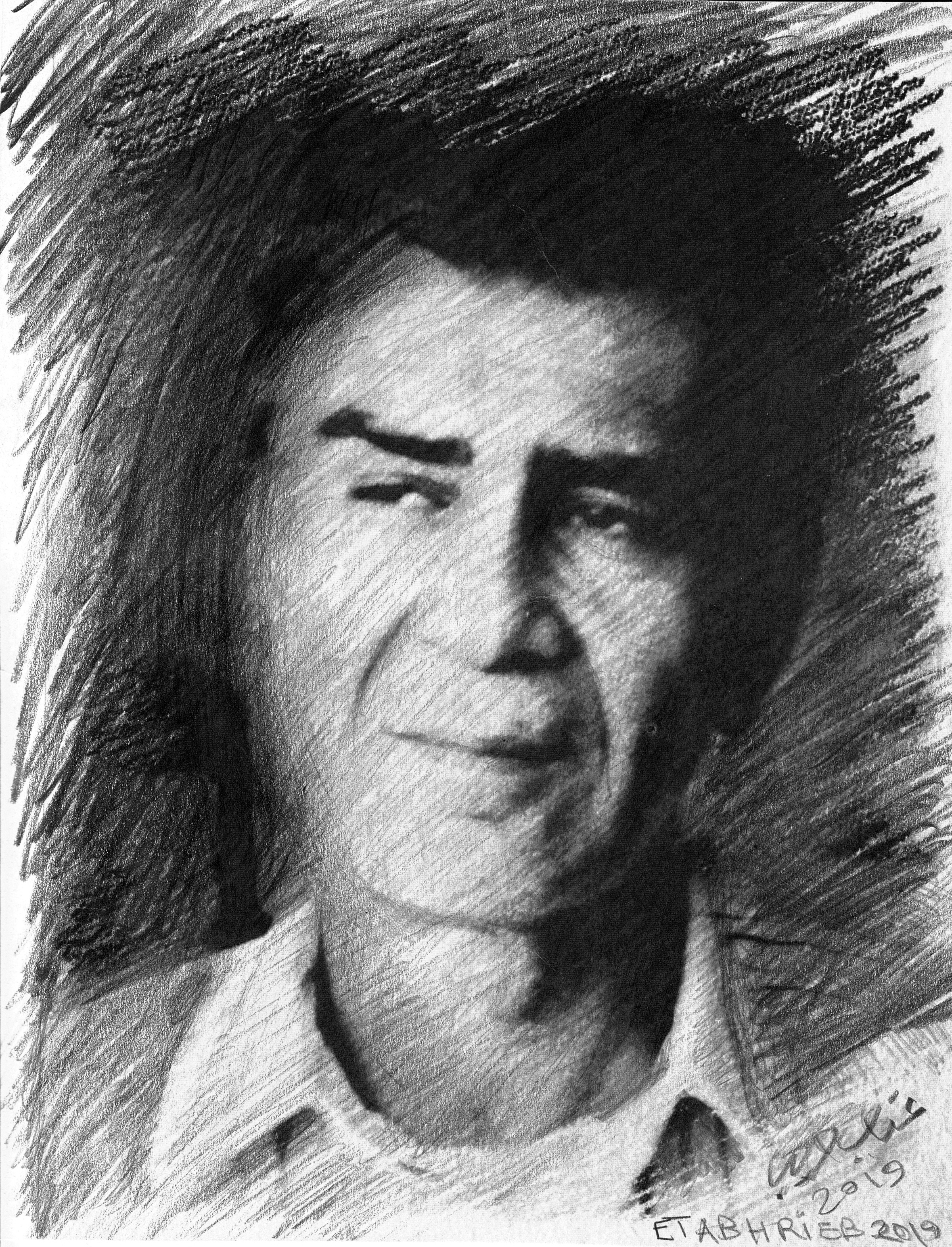Moayyad al-Rawi, the poet and intellectual, pushed the free verse movement of Arabic poetry into a new dawn during the 1960s. To many, Moayyad was a literary theorist and spiritual guide for this generation of Iraqis. “If we want to draw a portrait of the 1960s, al-Rawi was one of its most important members; and however short the memory of subsequent literary generations, that era remains a milestone in the history of radical rebellions in Iraqi culture,” said Iraqi author Fatima al-Mohsen.
Beyond his poetry, Moayyad actively participated in Iraqi cultural life, editing and publishing literary and artistic criticism and working in journalism both in Baghdad and Beirut. In addition, he worked as a calligraphist and painter. Moayyad emerged as the torchbearer of the Kirkuk Group, an influential group of poets and writers that challenged the classical rules of Arabic poetry. This group went beyond the reformist poetry introduced by poetic “pillars” like Badr Shakir al-Sayyab, Abd al-Wahab al-Bayati, and Nazik al-Malaika, pushing the free verse movement into new horizons. However, their literary commitments made the Kirkuk Group the target of distortion campaigns spearheaded by those of traditionalist, conservative, and religious backgrounds, who accused the group of being non-Arab. In reality, this was a misrepresentation of the group; Moayyad was the son of a Muslim Arab father and a Christian mother.
In his own work, Moayyad constantly delved into themes of freedom. He considered “poetry and art...as the opposite of logic,” believing that “logic restricts the mind from rediscovering the world in its many variations.” In free verse poetry, he found freedom that allowed for creativity and imagination, a poet’s main tools. “Moayyad taught me that the Western poem involves a great aesthetic freedom that the Arabic poem lacks. Language is the offspring of culture rather than the local environment. Language is a country the size of the world, an identity the size of unlimited dreams, outside time and place, even if the poem carries local sorrows,” said Awad Nasser of Al Mada newspaper.
Moayyad is best known for three books. “The Prospects of Clarity” (1977) contained refreshingly written imaginative prose poems. “Kingdoms” (2010) included lamentations for the self, as well as for the homeland and life. Moayyad’s final work, “The Singular Narrative” (2015), which was published two days before his death, was “not a rhetorical euphemism for narcissism and prophecy, but rather an expression of unity and reclusion. It is an ordeal of suffering and not a celebration,” in the words of Iraqi poet Mohammad Mazloum.
Although several of his works stood above those of his contemporaries, Moayyad did not dwell in the limelight, but rather avoided it. According to Awad Nasser, “Moayyad is a poet devoted first to himself, before doctrines or benefits. He is scarce in writing and publishing, but in the little he has published, rich. This man full of experience does not need media extravagance that degrades creators and will not elevate him.” He continued, “Moayyad did not care much about what impressions his poem leaves. His life was the second face of his poetry, which reflected a real human being, passionate about culture, and not interested in accessories. He taught me that poetry is beyond public rhetoric and has nothing but its own rhetoric.”
Excerpted from Elie Chalala's “Moayyad al-Rawi, Iraqi Poet and Renaissance Man Whose Work Painted a Portrait of the 1960s,” which appeared in Al Jadid Magazine, Vol. 23, No. 77, 2019.
Copyright © 2019 AL JADID MAGAZINE

